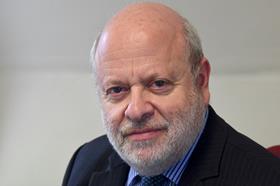This article was first headed ‘The day the Supreme Court was wrong’. That is because, as I was scrolling through recent judgments of the Court of Justice of the European Union (CJEU), I came across one from the middle of March which said exactly that – or, rather, to quote the heading from the press release: ‘The United Kingdom has infringed EU law as a result of a judgment of its Supreme Court’, Case C‑516/22.

The case was complicated, concerning compensation for investments in Romania which were negatively affected by legislation Romania was obliged to introduce in order to join the EU. Romania was ordered to pay compensation by arbitration, but the European Commission considered the compensation to be state aid. The investors registered the arbitral award in the UK, and the question was whether the arbitral award stood, in whole or in part (because part of the investment covered a period before Romania joined the EU). The High Court and the Court of Appeal stayed enforcement of the award, but the Supreme Court ordered its enforcement. Big mistake.
But, delightful as such a heading would have been, there is not much to learn from the case. For a start, the UK did not wish to submit any representations to the CJEU, and so the judgment, though reasoned, was by default. The point at law concerned principles from the EU treaties, and have no long-term lessons for us now that we are no longer a member – other than that there are fewer opportunities for our highest judges themselves to be judged. Although many people consider it a great benefit that our Supreme Court is indeed supreme, there is always something lost in such circumstances, because of the ancient phrase: who guards the guardians?
So I have opted instead for ‘How others cope with our problems’. That is because, as I was scrolling through the CJEU cases, another caught my eye, dealing with an issue that has much exercised our politicians recently: how to deal with asylum seekers from a non-Christian country who convert to Christianity here and are granted asylum on that basis.
The individual in this case came from Iran and sought asylum in Austria, Case C‑222/22. His original claim was refused by the Austrian courts on the grounds that it lacked credibility, and he was subject to a return decision. Eighteen months later, he lodged a fresh application for asylum on the grounds that he had converted to Christianity and feared persecution on that ground if he went back to Iran.
The final appeal hinged on the meaning of various words – ‘normal’, for instance, or ‘without prejudice’.
There is an entertaining passage in the judgment about the meaning of the German phrase ‘without prejudice’ – ‘unbeschadet’ – which can apparently mean both ‘in agreement with’ and its opposite, ‘without taking account of’. Which was to rule here? The fate of the asylum seeker depended on it. In line with its jurisprudence, the CJEU sensibly looked at other language versions, and chose the meaning which accorded with how others had translated it. (We have contronyms in English, too: cleave, left, dust, overlook, sanction.)
This piece is not about the intricacies of EU immigration law, but about how we should keep looking at how others solve our problems. Many of our neighbours are also burdened with huge costs in their health systems. And many of our neighbours face a large number of asylum seekers.
Austrian law states that refugee status in a subsequent application is subject to the condition that any new circumstance which the applicant has created by his or her own decision must constitute the expression and continuation of convictions held in the country of origin. In other words, using a conversion to Christianity, if it is a new circumstance created by the asylum seeker’s own decision, will only make him or her eligible for refugee status if the beliefs are a continuation of convictions already held in (in this case) Iran.
This is not what the Geneva Convention says, however - and EU law is subject to the Convention. That is why there was a fuss about the meaning of ‘without prejudice’. There are no such reservations in the Geneva Convention.
The CJEU therefore decided that EU law does not permit national laws which say that someone who has subsequently converted to Christianity after being first refused cannot be recognised as a refugee unless the conversion reflects previous convictions in the country of origin. Nor can national law presume that any subsequent application based on the person’s own conduct since leaving the country of origin must be the result of abusive intent and abuse of the procedure. Each subsequent application must be assessed on an individual basis.
The judgment says more beside. But the point here is to keep an eye on what others in the same position are doing. We may learn something.
Jonathan Goldsmith is Law Society Council member for EU & International, chair of the Law Society’s Policy & Regulatory Affairs Committee and a member of its board. All views expressed are personal and are not made in his capacity as a Law Society Council member, nor on behalf of the Law Society































No comments yet